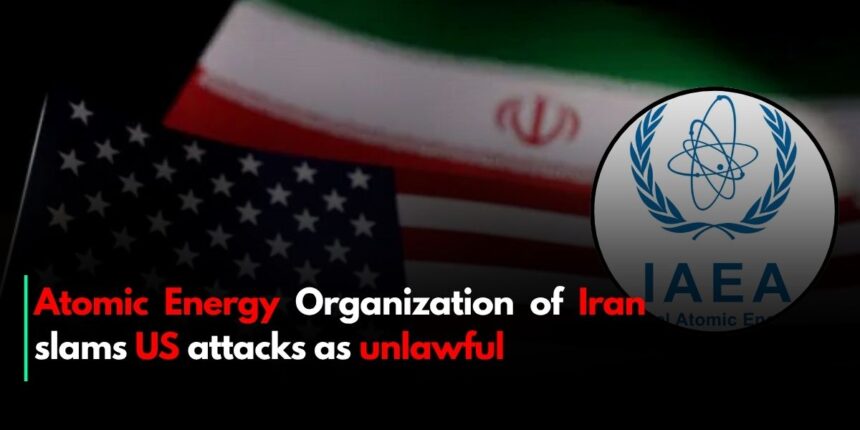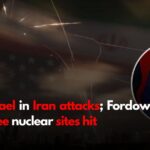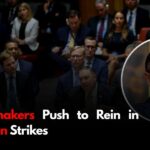The Iranian nuclear energy agency (the body dealing with Iran’s nuclear program), announced that it condemned recent mentions of American bombings of its sites and claimed this constitutes a violation of international laws and treaties, particularly the 1968 Nuclear Non-Proliferation Treaty (NPT).
U.S. Attacks on Iran’s Nuclear Sites
On June 21, former U.S. President Donald Trump said that the U.S. worked with Israel to target Fordow, Natanz, and Isfahan nuclear sites from the air using upgraded “bunker-buster” bombs and cruise missiles. Trump said the mission was a success and that its goal was to stop Iran from getting nuclear weapons. He also said that more action will be taken if Iran did not cooperate.
AEOI Statement: “Brutal and Illegal”
The AEOI branded the strikes “brutal and illegal” and responded within hours. It said that attacking nuclear plants that are protected by NPT and IAEA rules is a clear violation of international accords. The organisation also said that the International Atomic Energy organisation (IAEA) was “complicit by silence” because it didn’t speak out against these practices.
The AEOI said in its departmental statement that it “reserves all legal and technical options” to protect Iran’s sovereign rights and will make claims in international venues, such as the IAEA safeguards processes and maybe the International Court of Justice (ICJ).
Tehran’s Wider Response
Iran’s Foreign Ministry published AEOI’s view (@abbasaragchi) and stated that any military action connected to any of these airstrikes would certainly be interpreted as some attempt to change the regime, with little relation to the illegal nature or legitimacy of any potential diplomatic action that Tehran might take.
President Massoud Pezeshkian joined in, calling the airstrikes a full-blown attack on international law. Tehran promised to keep working on its nuclear program and called the strikes an attack on its peaceful energy development.
Effects on the region and the world
World leaders are worried about this. António Guterres, the UN Secretary-General, called the strike a worrying escalation. Russia and China agreed, saying that the strikes were provocative and put regional stability at risk.
Some U.S. politicians at home didn’t like Trump’s choice. Some Republicans and Democrats said that going around Congress to take military action could lead to further fighting.
What’s Next?
Legal options: Iran is likely to file complaints with the IAEA and maybe even take the case to the ICJ.
Military threats: Officials in Iran have said that they might respond with missile or cyberattacks.
Diplomatic tension: Iran has put talks about the nuclear accord on hold after the strikes.
Last Look
The AEOI’s strong condemnation shows how dangerous this time is for efforts to stop the spread of nuclear weapons around the world. Attacking nuclear sites weakens established protections and puts decades of diplomatic achievement at risk. As governments ask for calm, the world watches and hopes that law, not weapons, will guide the way forward.










